The search for sanctuary
Each year on 20 June, the world honours refugees everywhere for their courage to flee from conflict and danger, trying to create a safe future for themselves and their families. The situation is dire: according to the UN Refugee Agency (UNHCR) at the end of 2019 79.5 million people were forcibly displaced worldwide. Two of them were welcomed here in Maastricht. They tell us why they fled their countries, leaving everything behind, and what their hopes for the future are. Their names are Safwan Abdulhamid (35) from Syria and Sufian Jubran (33) from Yemen.
Sufian Jubran
Sufian Jubran was an anchor for a local TV station in Yemen. He had to flee his country when the Houthis bombed his home and stormed the TV station, taking over control.
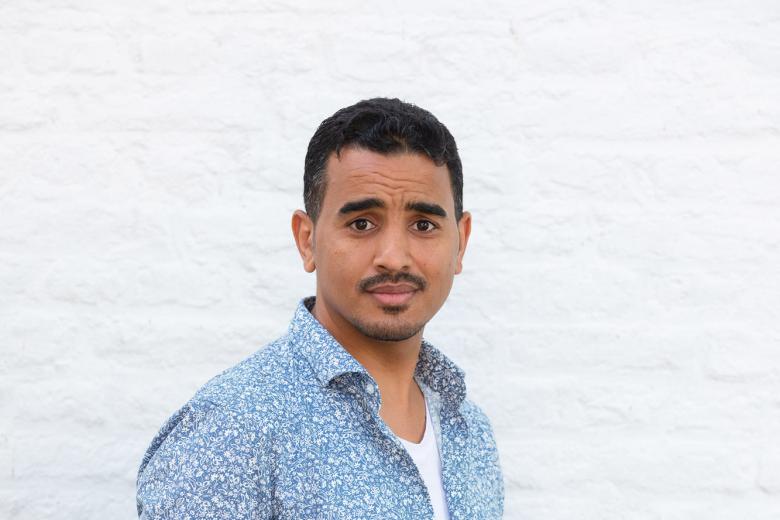
Safwan Abdulhamid
Safwan Abdulhamid worked as a United Nations Humanitarian Affairs officer in Syria. He had to flee when he was arrested and forcefully recruited to perform military service.
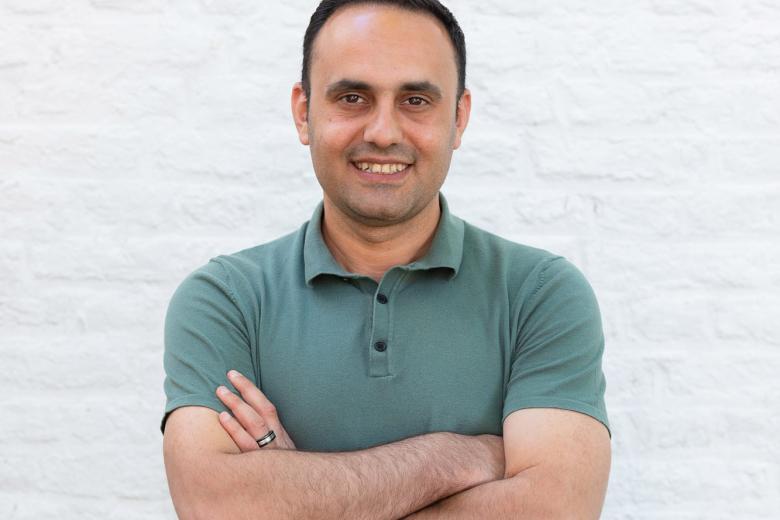
Sufian feels safe in Maastricht
Sufian Jubran was an anchor for a local TV station in Yemen. He had to flee his country when the Houthis bombed his home and stormed the TV station, taking over control.
When did you leave Yemen and what caused you to leave?
“I left Yemen after the Houthis took over the capital Sana’a, at the end of 2014. When I was in Sanaa, I had everything going for me. I was an anchor for a local TV station and I was studying English. I presented political programmes live on television and spoke about the injustice that was being done. First, I got out of my home and hid in a friend’s house in Sana’a because my face was known as a public figure and they had checkpoints in the streets of the capital. Then my home was bombed, the Houthis stormed the TV station where I was working on and they began to control everything. I had no other choice than to leave Yemen hoping that the war will end and I can return. However, the situation is now even more dangerous and keeps getting worse.”
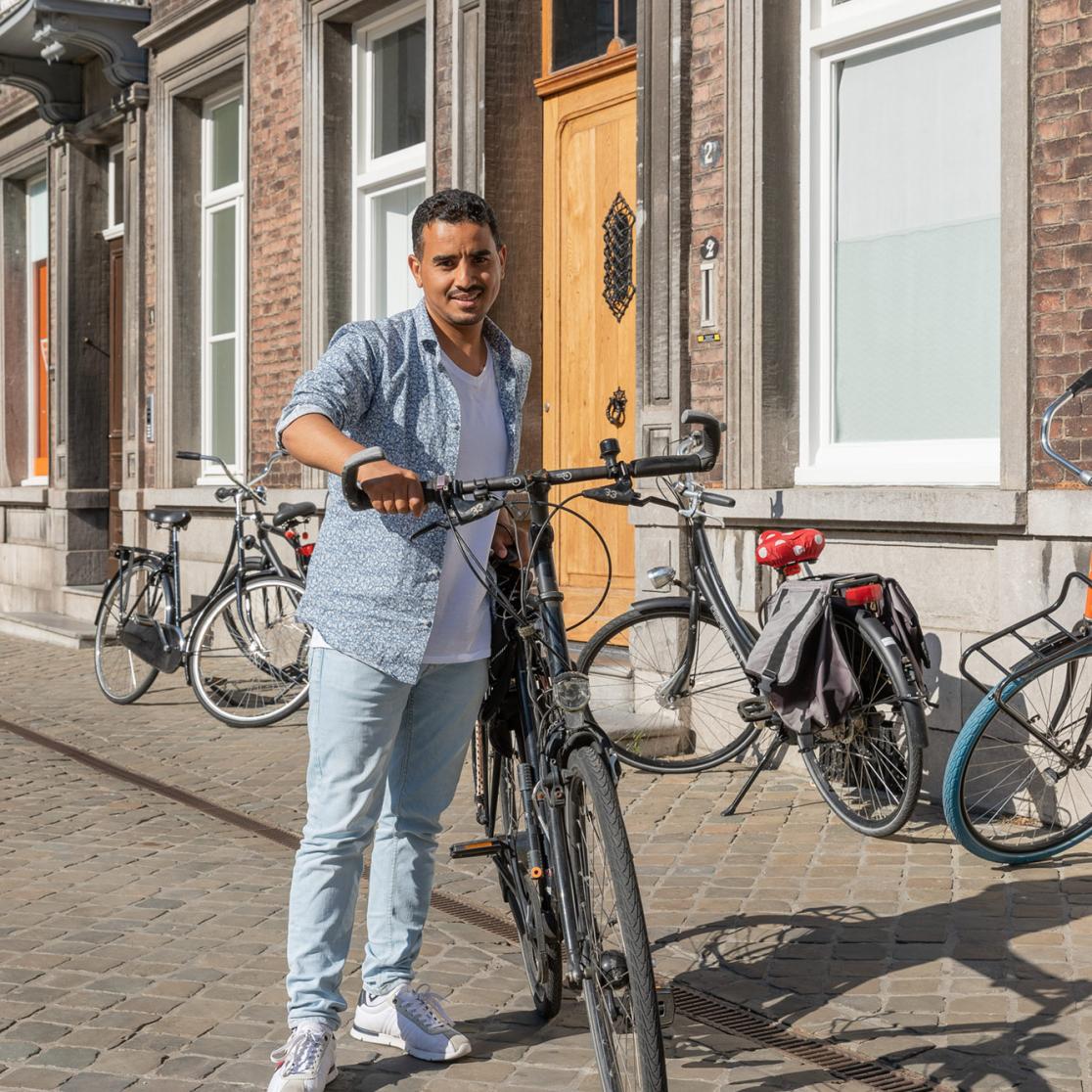
You were a TV presenter in Yemen, you had a good life, friends, an interesting job… How is your life now that you are in Maastricht?
“The first months I was confused an unstable without a plan or a clear goal. I could only think of what was happening in my country Yemen, where I experienced painful events. I clearly remember everything and the war is still raging now. I think I have a ‘survivor guilt syndrome’: I think of all the tragedies that are still happening and I want to do something for Yemen, but that is not possible while I live in a safe place. I am trying to accept that, so recently I began to immerse myself in work, study and volunteer work. This helps me a lot in forgetting the great pain about the situation in Yemen. I want to bury sadness and frustration and replace negative energy with a positive one that makes me think about a bright future. I joined the Refugee Project Maastricht and almost daily do volunteer work. That makes my soul and brain shine again.”

Do you miss your country and your life there?
“I miss everything, I have memories in every spot. I grew up in a remote village; for years I walked about three hours to reach school, climbing dusty mountains. I helped my father and mother on their farm, herding sheep and cows. I worked in construction and restaurants before entering university and starting my life in the paper and electronic press until I became a TV presenter in political programmes and news. I have memories everywhere and I have hundreds of close friends at home. I miss everyone, my parents, my brothers and sisters and the people of my village.”
How is the current situation in Yemen? Is there a constant threat of danger, are there enough food and medical supplies?
“People have not been paid for four years. Because of the corruption of the previous regime, we were the poorest and least educated country in the world before the war, let alone after the war. Life in Yemen has become unbearable; everyone wants to escape the war and poverty, suicide rates have increased, killings have increased among people, and disputes have increased among families and relatives. The war is still raging between the Iranian-backed Houthis and the Saudi-backed government, and there is a third faction supported by the Emirates that wants the secession of southern Yemen from the north. When I think of that and I watch people here buy whatever they want and laugh in the parks, children go to school and have all the basic needs and amenities, I feel as if I came through an electronic machine from another time and from another planet. I wish prosperity to the developed countries around the world, and I hope that they intervene to save Yemen.”
Do you expect the war will last much longer?
“I am afraid that the world has forgotten Yemen and left us alone in the face of the terrorist group Houthis. There is a funny thought that always comes to my mind since I arrived in Europe. I ask myself what if Yemen was located between the Netherlands and Germany, or between Switzerland and Austria. It would have been different. I want to see a stable and democratic Yemen in which citizens enjoy personal freedoms and all means of life are available to them, and women have full rights. I hope one day I can return to Yemen and the war will end soon. I spend a lot of time thinking about Yemen's development in its cities, universities, schools, and infrastructure. Corruption should stop in my country. The poor should get a real chance to live, become educated and get a job. And there should me attention for health and sports.”
Do you have a message for people in Yemen and for refugees in general?
“I tell the people in Yemen: smile in front of the children, do not tell them about the war and the corpses that return daily to the cities and villages, do not tell them that you have not received salaries for the last four years. Tell them that they look like beautiful when they are wearing their brothers’ old clothes, that they have what all the children in the world have. There is no difference. The sun shines on everyone and the air is available to everyone. Do not tell them that there are lessons in swimming, drawing, music and sports for children in another part of this world. Make sure that they learn and continue their studies no matter how bad the conditions are. To refugees who feel paralyzed by negativity due to overthinking the past and now live in isolation: build a new community, build a new life, quickly integrate into your host country, learn Dutch, get work. It is not difficult to find a happy life, just wake up early every day, smile and go and get the work done.”
Text: Margot Krijnen | Photo's: Philip Driessen
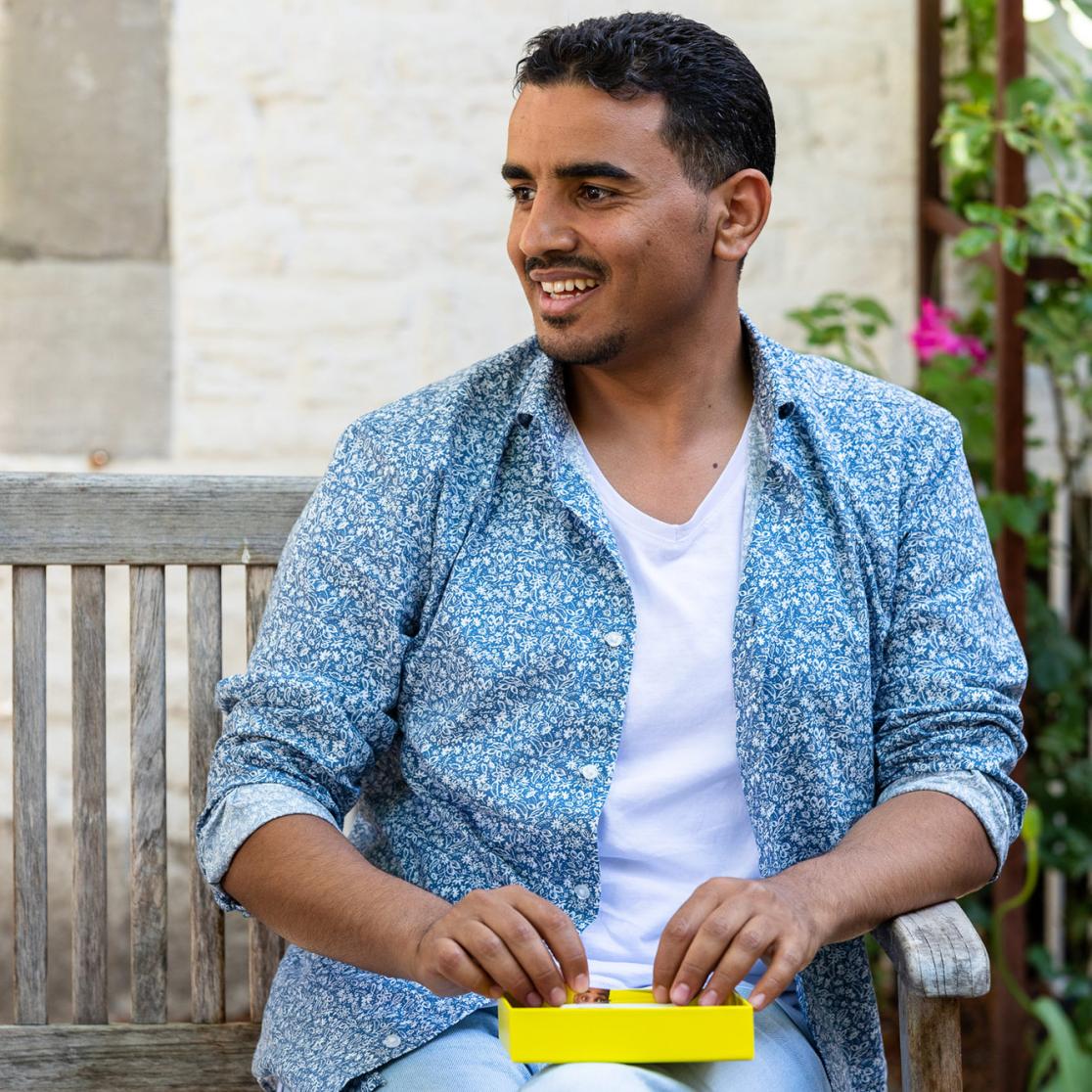
Yemen: the world’s worst humanitarian crisis
Yemen’s civil war began in 2015 as a result of clashes between Yemeni government forces and the Houthis - also known as Ansar Allah. Over the past six years, conflict and economic decline have taken a heavy toll on civilians, forcing millions to flee their homes and leaving 66 percent of the population in dire need of humanitarian assistance. Even before the current crisis, Yemen was the most vulnerable country in the Middle East. It ranked among the world’s worst in malnutrition rates and half of its population was living in poverty, without access to safe water.
After six years of war, Yemen remains the world’s worst humanitarian crisis. More than 4 million people have been uprooted from their homes and more than 20 million are in dire need of humanitarian assistance. The risk of a large-scale famine in the country has never been more acute. Tens of thousands are already living in famine-like conditions, with a staggering five million more just one step away from it. (Source UNHCR)
Syria: the world’s largest refugee crisis
The Syrian refugee crisis is the result of a March 2011 violent government crackdown on public demonstrations in support of a group of teenagers who were arrested for anti-government graffiti in the southern town of Daraa. The arrests sparked public demonstrations throughout Syria which were violently suppressed by government security forces. Conflict quickly escalated and the country descended into a civil war that forced millions of Syrian families out of their homes. Ten years later, the number of Syrian refugees has hardly declined and more than 13 million people still need humanitarian assistance - including 6 million who are in acute need.
After ten years, Syria remains the world’s largest refugee crisis. More than 6.6 million Syrians have been forced to flee their country since 2011 and another 6.7 million people remain internally displaced. The vast majority – approximately 5.5 million refugees – have found refuge in neighboring countries, primarily in Turkey, Lebanon, Jordan, Iraq and Egypt. (Source UNHCR)
Safwan builds a new future in the Netherlands
Safwan Abdulhamid worked as a United Nations Humanitarian Affairs officer in Syria. He had to flee when he was arrested and forcefully recruited to perform military service.
Why did you have to flee from Syria?
“In Syria, every man has to perform military service. As long as you are a student, you are exempt from that obligation, but when you graduate, you have to go. As soon as I had earned my master’s degree, I no longer had a legal reason to postpone. I was forcefully arrested and recruited. That was a difficult time, because when they raided my home, my wife was in the early months of pregnancy with our second child. I was incredibly worried that the shock would affect the pregnancy. During the military training period, I tried to remain close to my wife to make sure she was safe, but that was very difficult because of the training system. When our second daughter was two months old, I arranged the escape, although I knew my attempts could fail and I could be killed at any given moment. Smugglers led me through the frontlines between the government and opposition groups. I got to Turkey, then on a boat to Greece, where I could travel from an island to the mainland and take an airplane to the Netherlands. My wife and daughters of three and one and a half years are still in Syria, but in a safe place. I worry about the relationship between my second daughter and me. She was so little when I had to leave; she hardly got to know me while I was still there. I have video calls with my family to see each other and stay in touch. I count the days till I can get them over here and be reunited with them.”
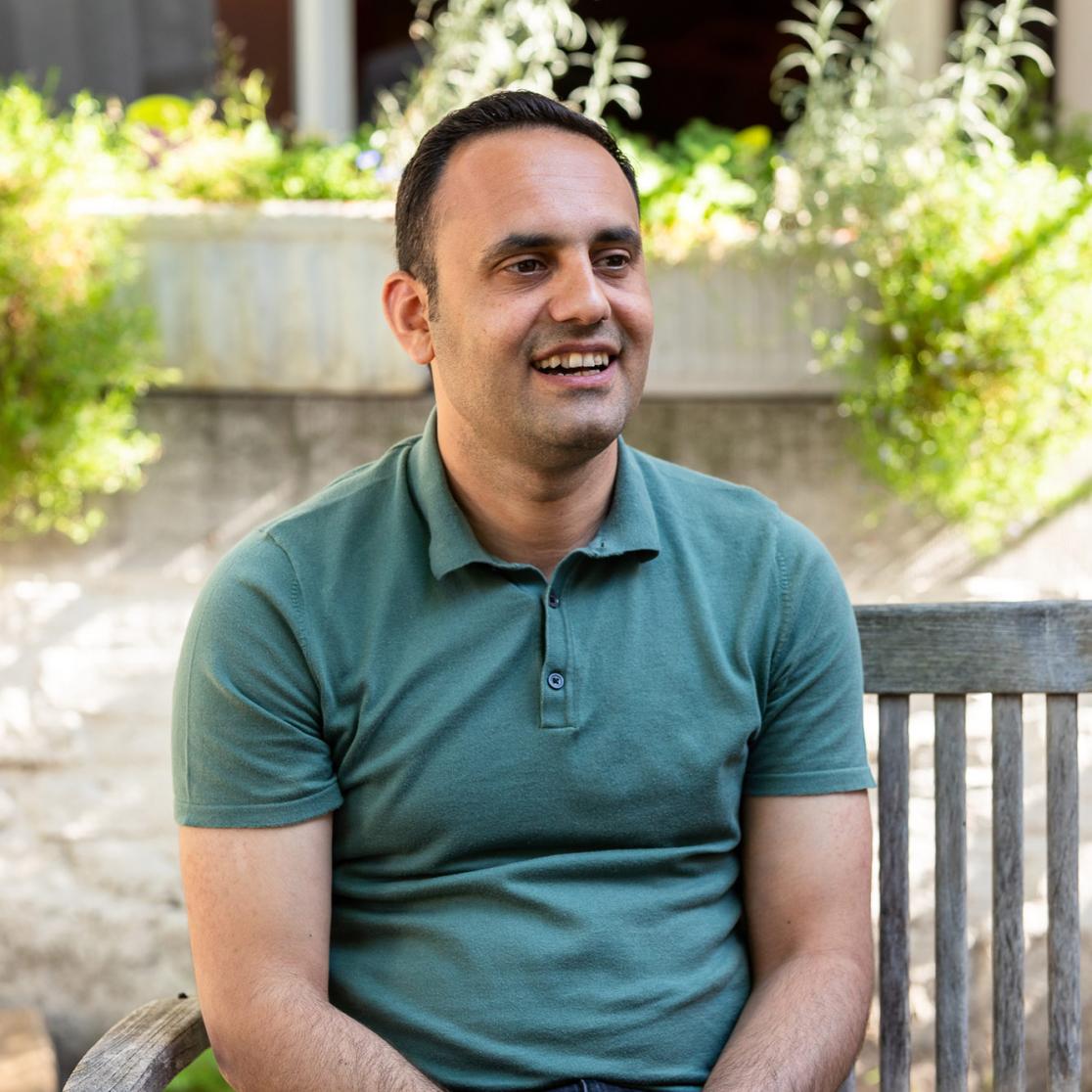
You worked as a United Nations Humanitarian Affairs officer in Syria. Could the UN not keep you out of military service?
“Unfortunately, the UN can’t do anything. That is a big problem. In 1950, Syria joined the UN and one of the agreements was that UN national staff should be excluded from military service. But during the war, the Syrian regime did not follow up on this. For 5 years already, there is an ongoing discussion at the UN in New York with the Syrian commission about this, but they are not able to reach an agreement with the Syrian government. I am definitely not the only case. Many UN staff colleagues face the same problem.”

How do you see your future?
“Here in the Netherlands, I want to complete my education path. Most universities offer education in English, so for sure I will study again. I have a master’s degree, which can be validated, but I fully understand that each country prefers their own master’s degrees on the job market. Therefore, I will try to get a master’s degree in sustainable international development from a Dutch university, which can help me continue my work as a humanitarian and development worker. As soon as I become a status holder, I can start with ‘inburgeren’. Immediately after I arrived here, I started to learn Dutch on my own. Now I already have level A2, which ‘inburgering’ requires.”
What is your role at the Refugee Project Maastricht (RPM)?
“I got a chance to work for RPM as a volunteer and to help them build an ambassadors team to support refugees in Maastricht. I assist RPM with their planning and I help them reflect on refugees’ needs. I can build on my experience and at the same time adapt to a European style of working. RPM has broadened my horizon and allowed me to meet many different people. It has opened doors widely, also in my social life.”
What would be your advice to refugees?
“Always be strong, focus on hope. Pursue life as a human, not as a refugee. Being a refugee is only a status, not a qualification. You are simply a man or woman, who had to leave their country because of certain circumstances. Believe in yourself, believe in your capacities. You are not a second-class person because you are a refugee. You are just as valuable as everyone else and you can make an important contribution to your host country. I sincerely hope for peace for all refugees and I wish they can all return to their home countries.”
Text: Margot Krijnen | Photography: Philip Driessen
Shortly after the interview, Safwan Abdulhamid was informed by the Dutch Immigration and Naturalisation Service that he is now a status holder and can stay in the Netherlands. This means he can start the process of bringing his wife and children here to be reunited as a family.
Also read
-
Steel tariffs explained: Why is the EU doubling them — and at what cost?
The EU announced last week that it would double its tariffs on steel to 50 percent, bringing them in line with US levels. Studio Europa Maastricht spoke with Mark Sanders, Associate Professor of International Economics at Maastricht University about the latest developments surrounding the increase...

-
ERASMUS+ - free movement of ideas and skills
Under ERASMUS+, the European Commission's mobility programme for education and training, UM sends and receives more students than any other Dutch university. President Rianne Letschert on her own ERASMUS experience, the benefits of leaving your comfort zone, and being inspired by different...
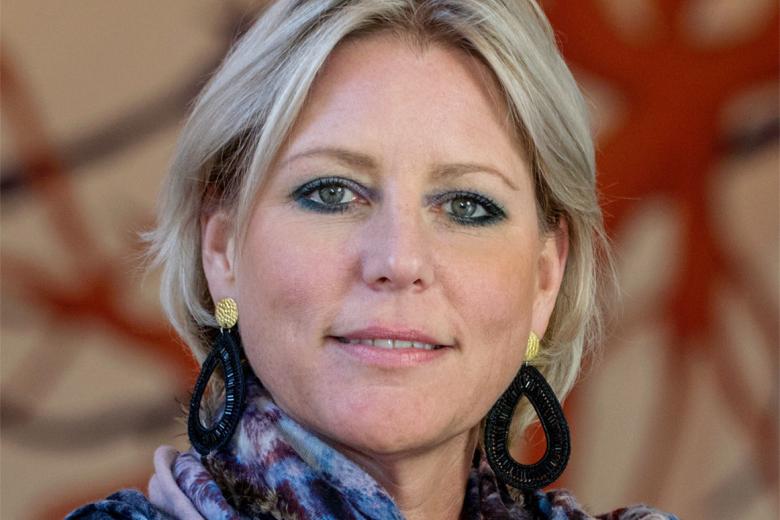
-
WHO designates two CAPHRI centres as new Collaborating Centres for Public Health Leadership and Workforce Development
With these centres, WHO wants to advance the professionalisation and competencies of the public health workforce.






